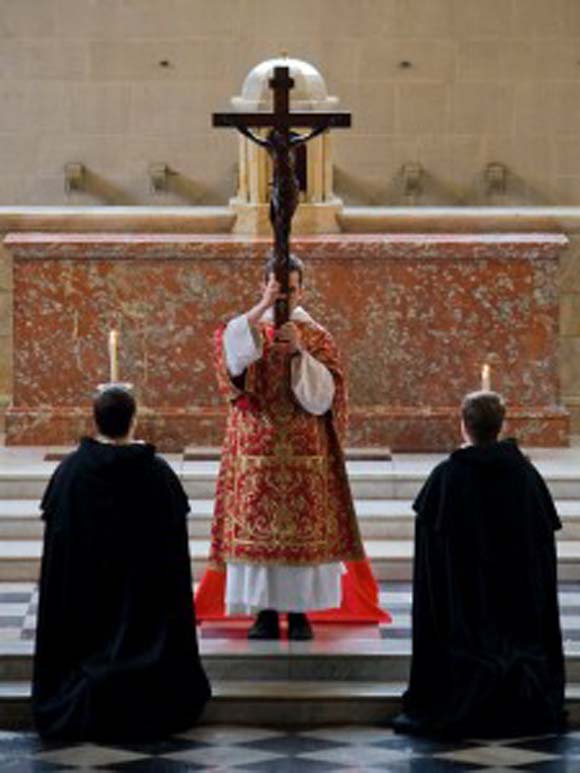
‘It is finished’ (John 19:30)

The last words spoken by the dying Christ in St. John’s Gospel are simply: tetelestai, or in Latin, consummatum est. ‘It is finished’ or ‘it is fulfilled’. Did Jesus mutter these words on the cross as his life slipped away in a tone of resigned defeat? Or were they regretfully sighed like one obliged to undertake a painful but necessary task? Did Jesus utter ‘it is finished’ in exhausted relief that he had endured to the end? Or was it instead a defiant cry of victory?
It seems to me to be quite important that the cross came to an end, both in the sense that the suffering lasted for a finite time and in the sense that the cross had a point, it had a meaning. One of the great tragedies of our fallen world is that so much human suffering can seem pointless, meaningless, absurd. When we contemplate the cross, we see human nature tortured by its own sin, humanity nailed by sin to the tree. Yet we also hear the God who has taken on our human nature tell us from the cross: ‘it is finished’. These are not words of despair but hope. If we join our sufferings to the cross of Christ, if we die with him, then we shall also live with him. The cross is not the last word. Our true end, our true human destiny, is the vision of God in heaven.


